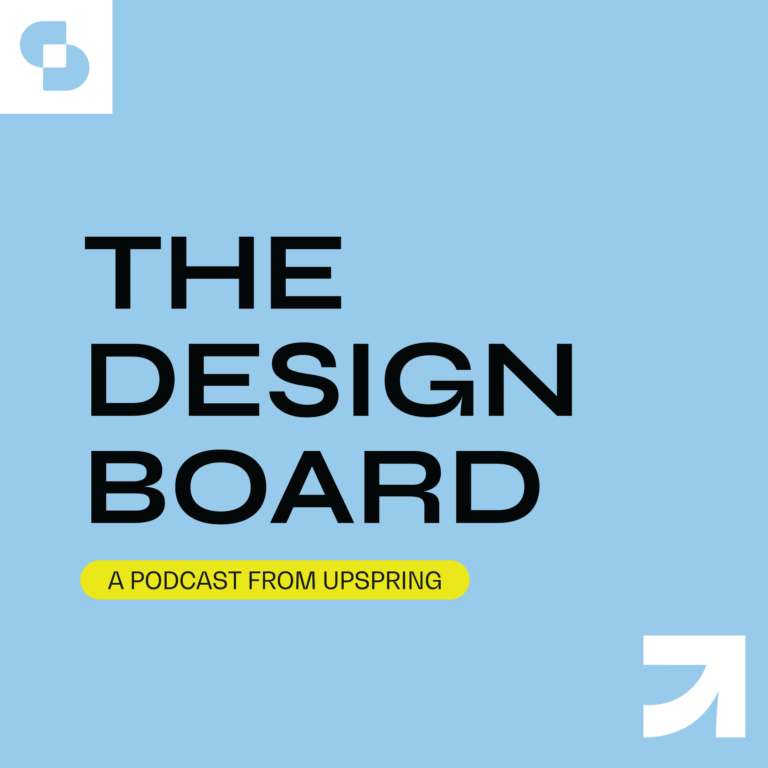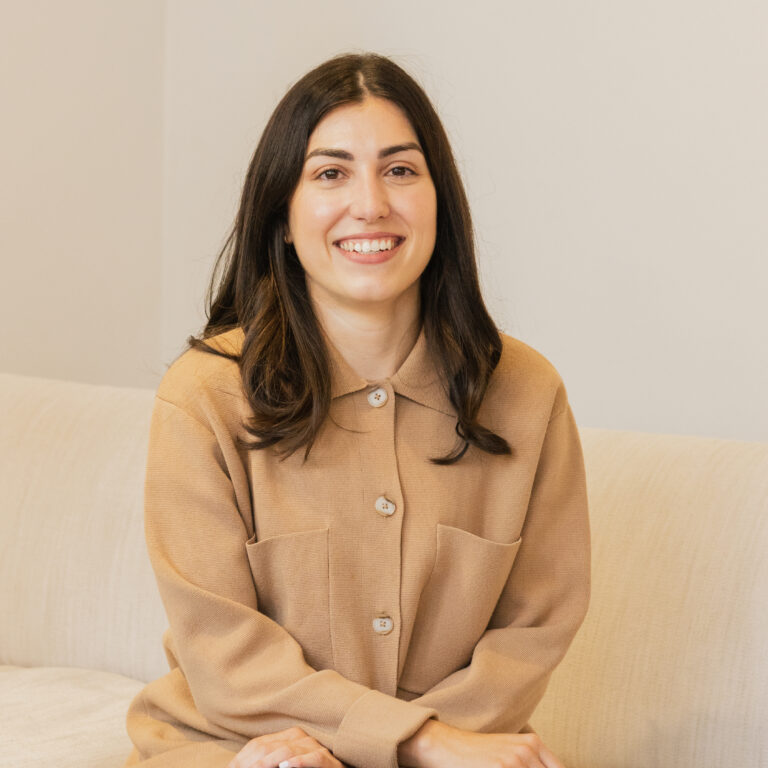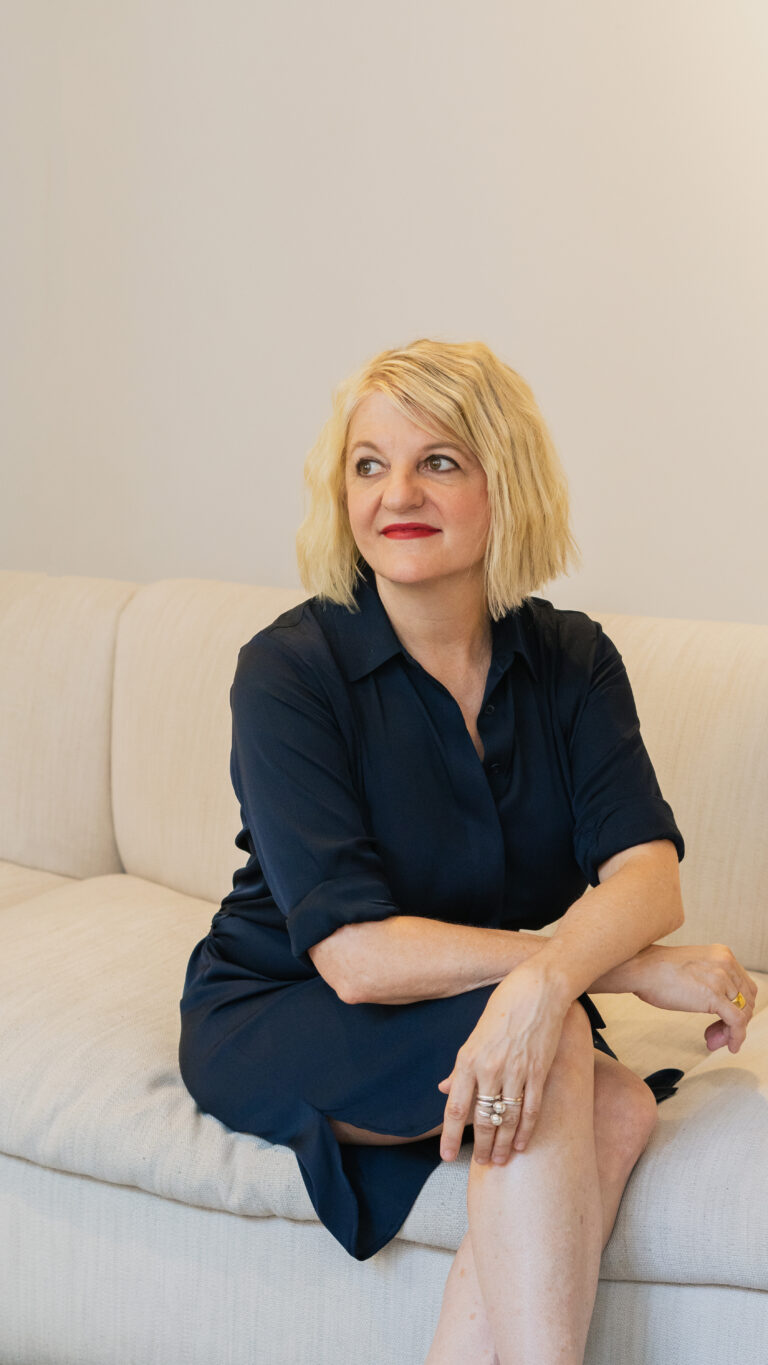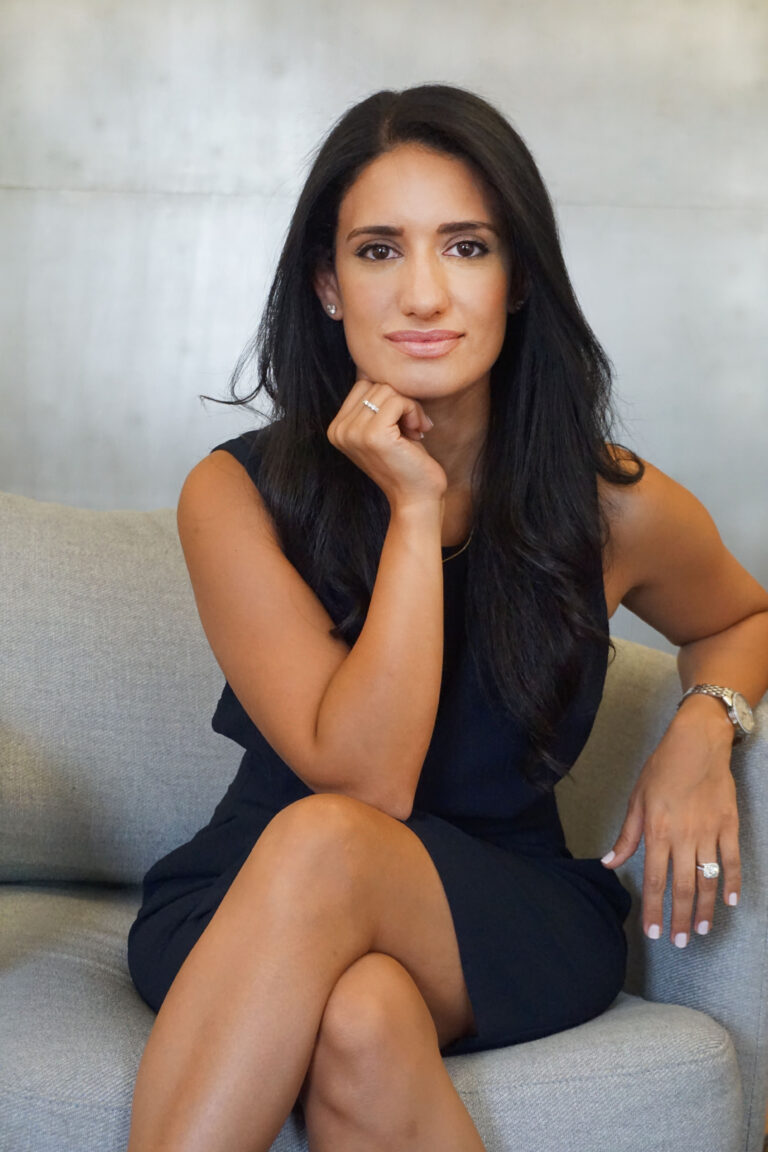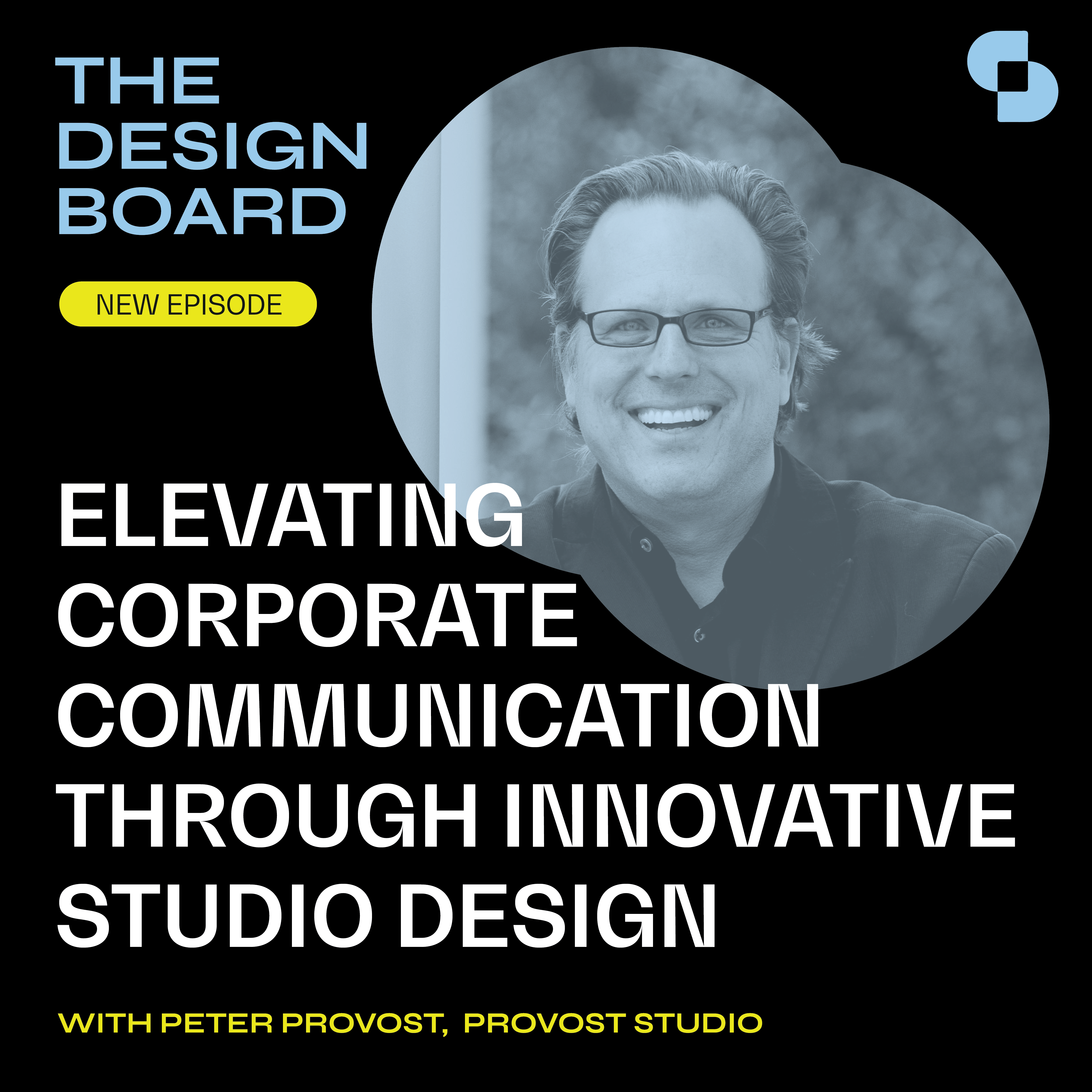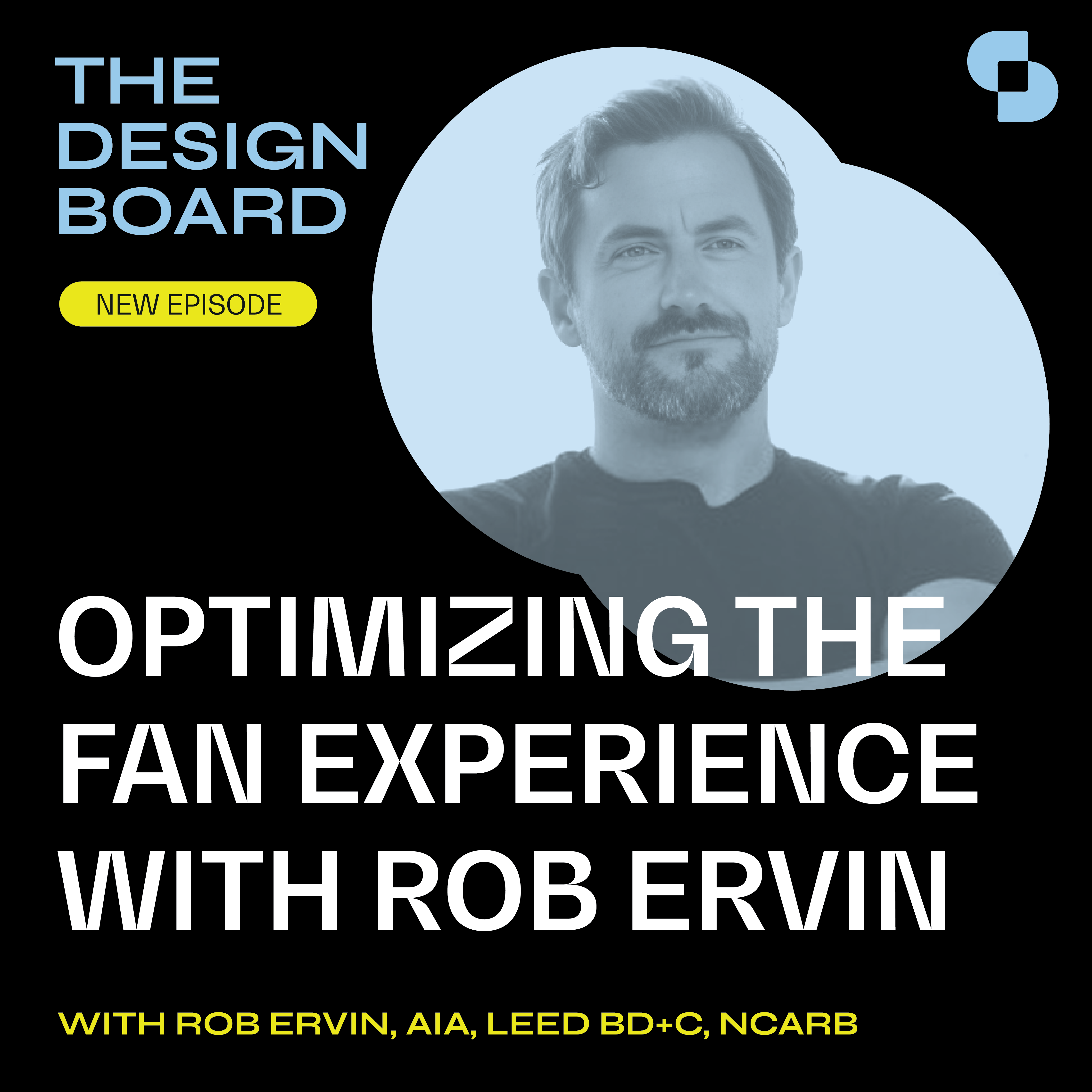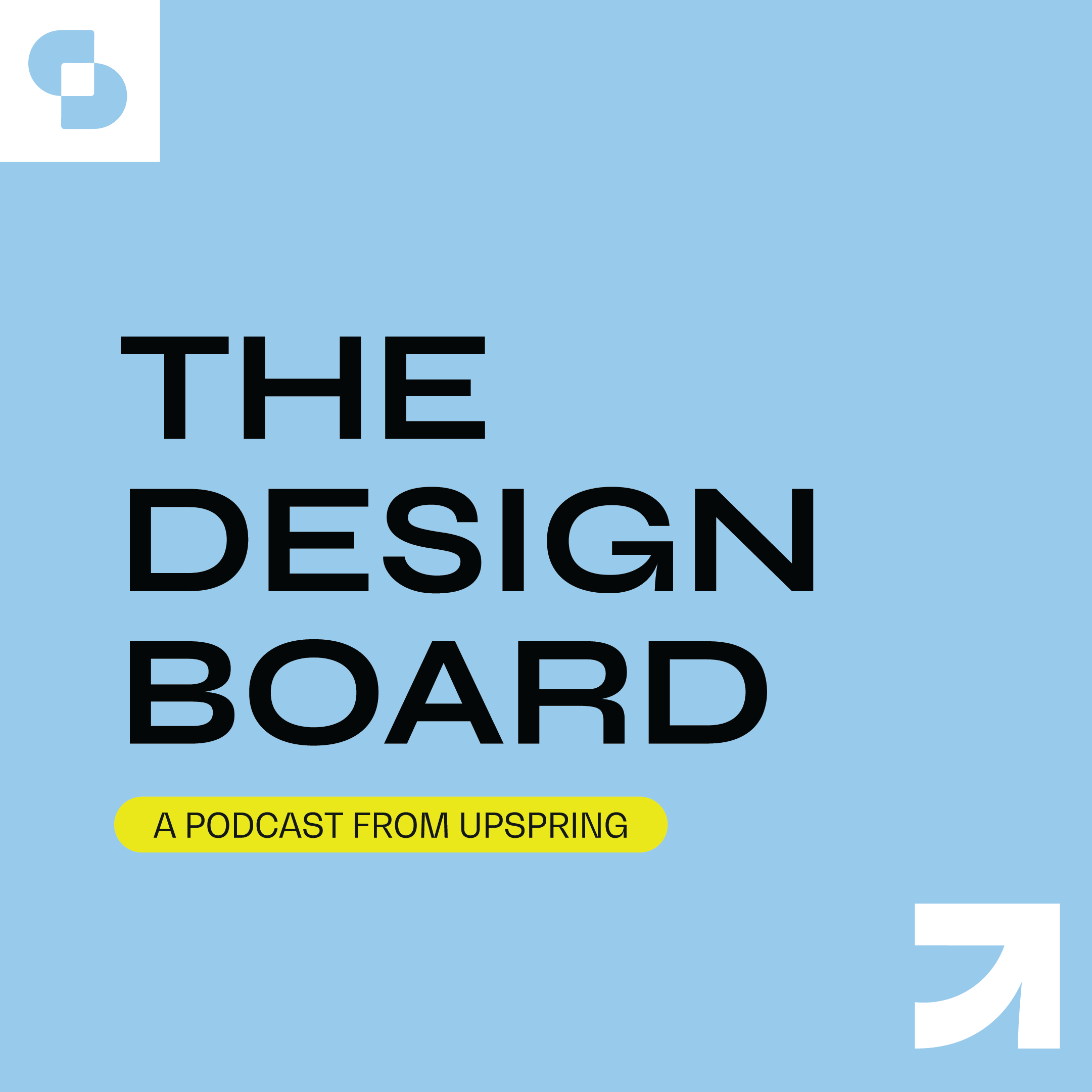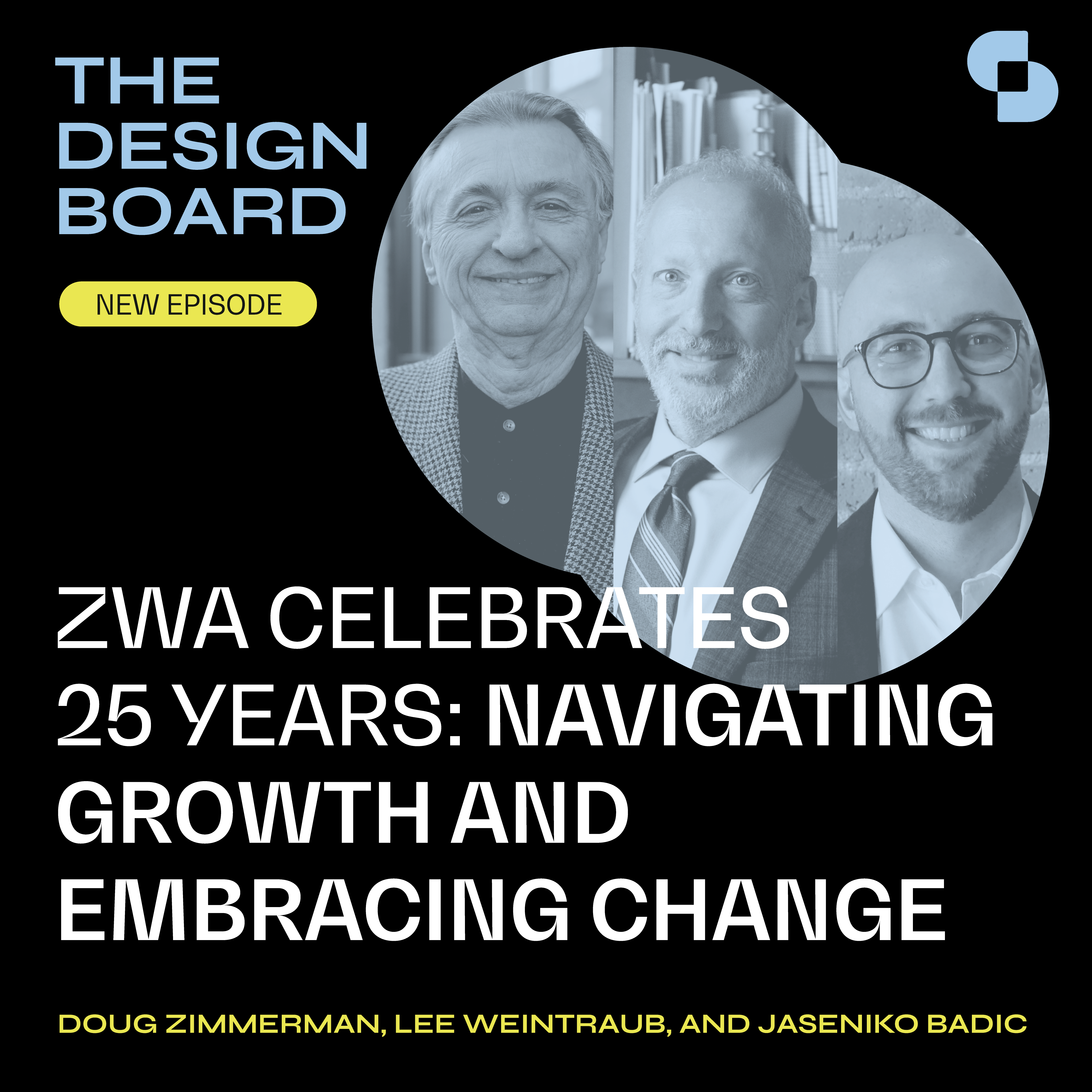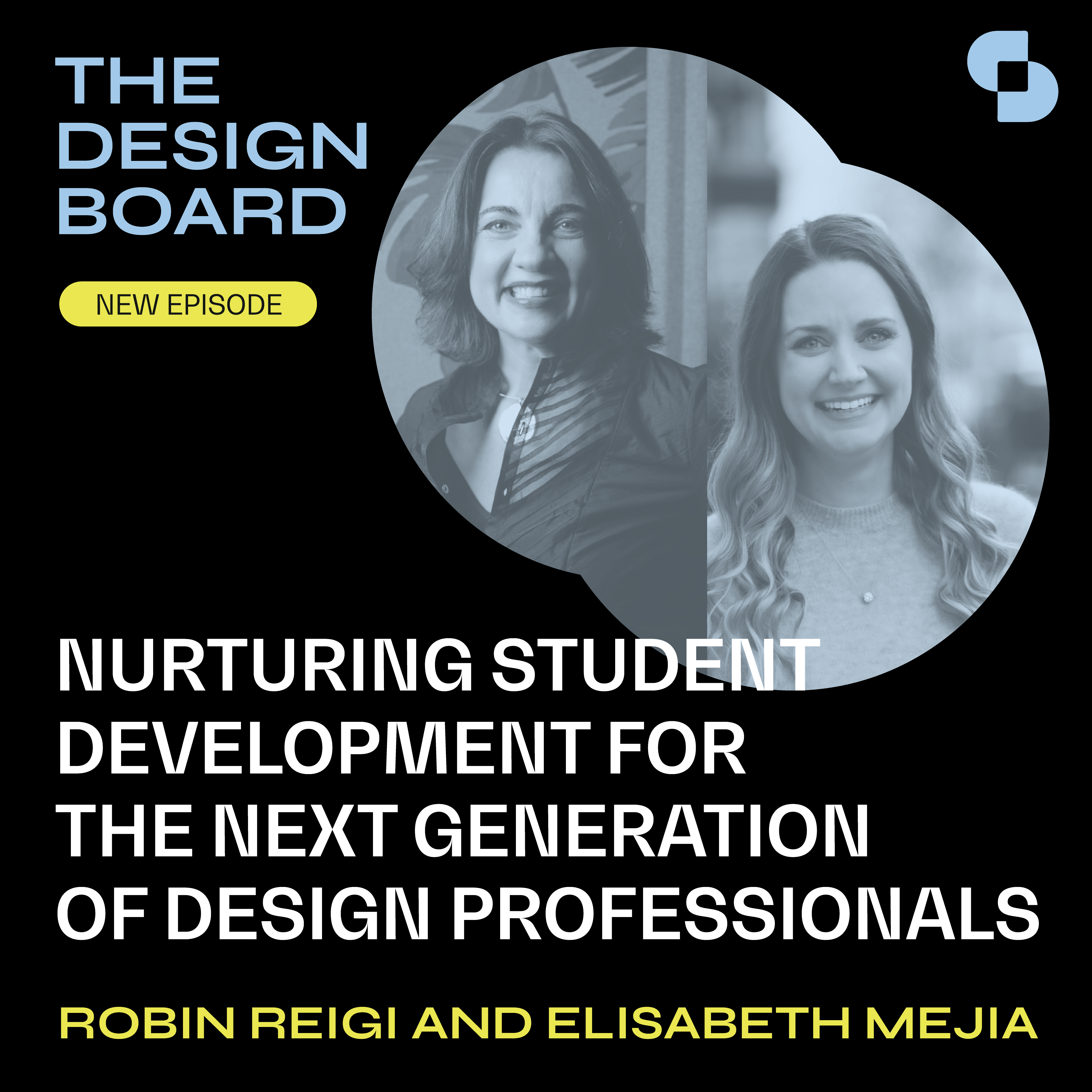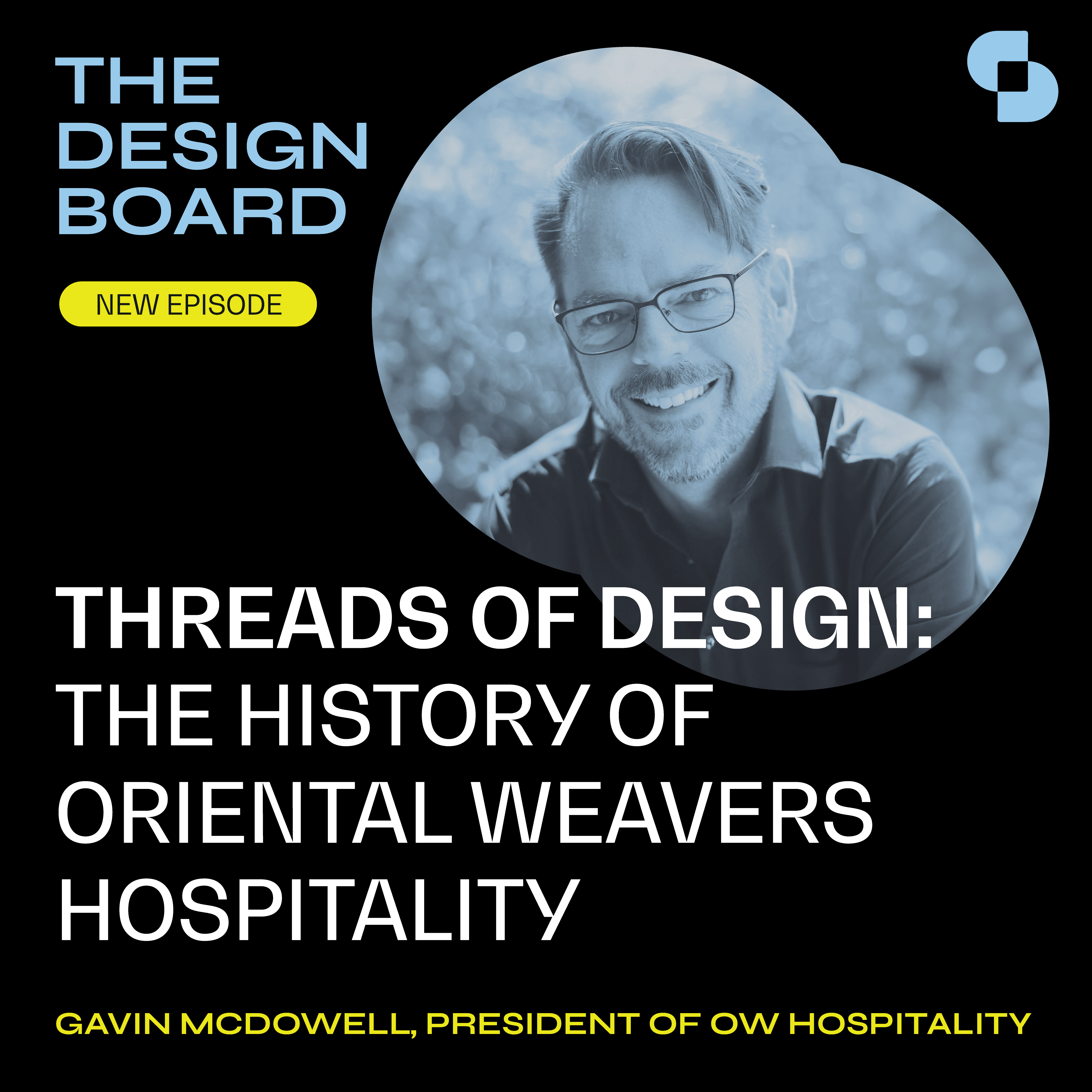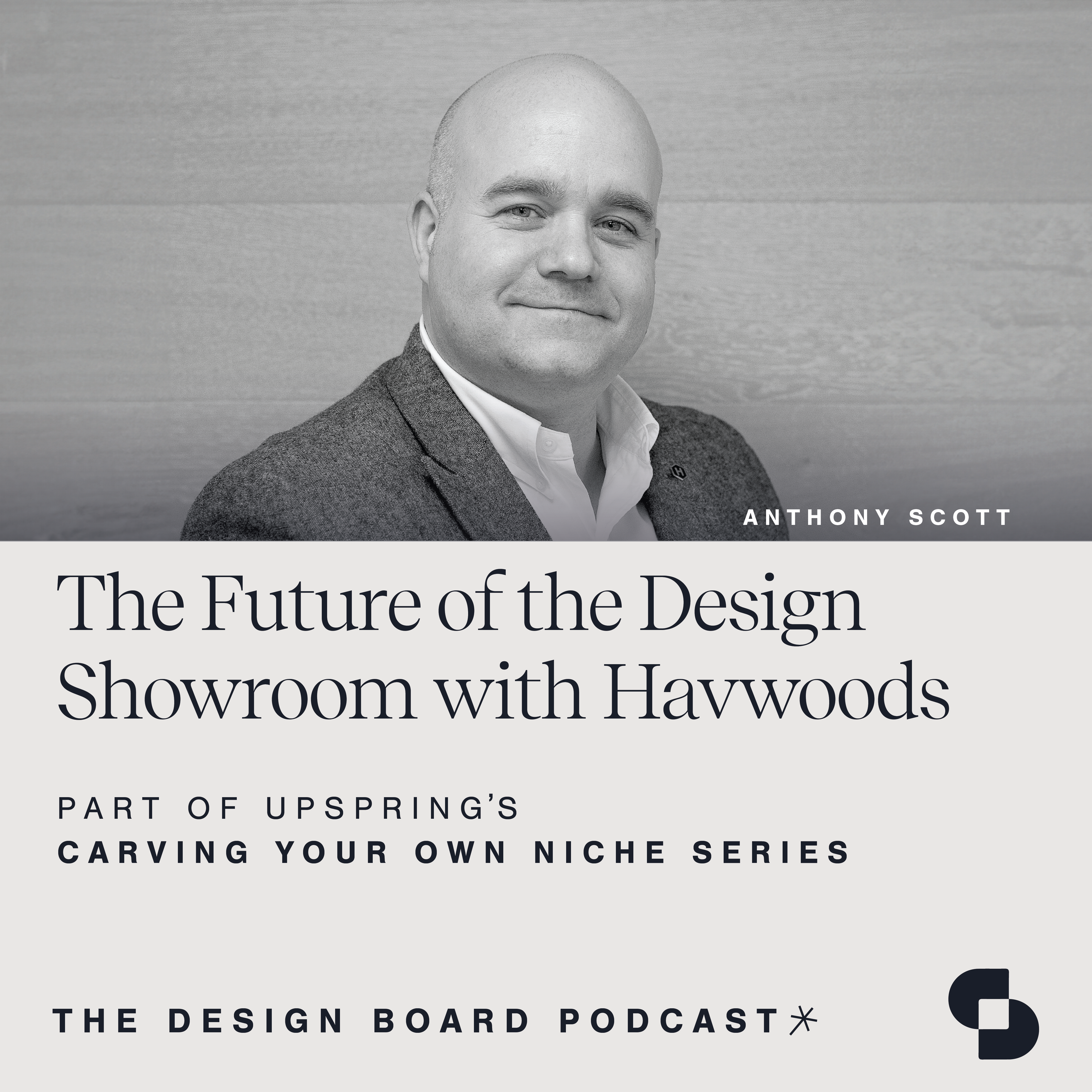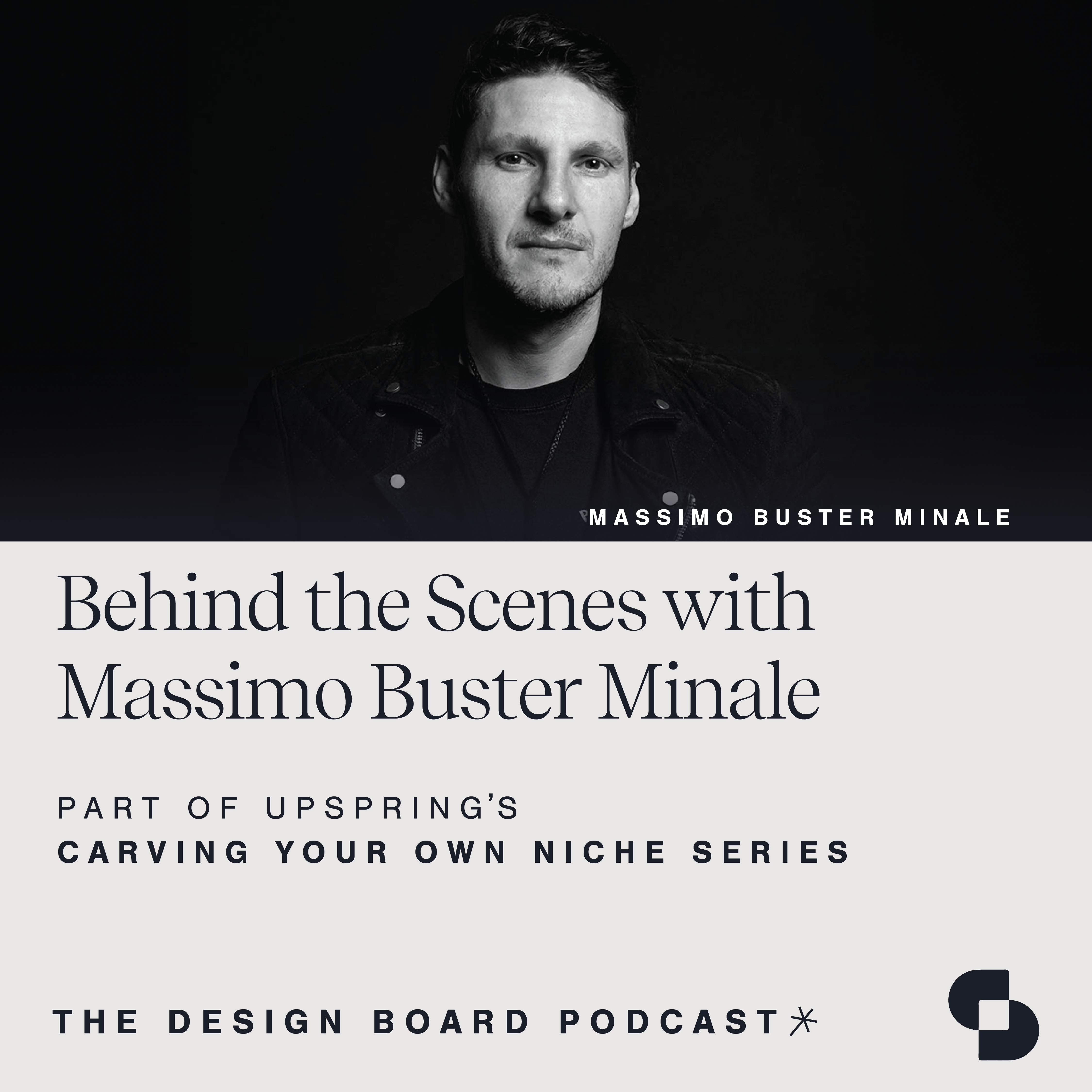In this episode, host Tiffany Rafii is joined by David Tracz and David Shove-Brown, the visionary founders of //3877, a distinguished multi-disciplinary firm based in Washington, D.C. Join us as we take a journey back to the fall of 2010 when David and David embarked on the pursuit of their decade-long dream – forming a professional architecture and design partnership.
The Design Board, by UpSpring, is a proud member of SANDOW Design Group’s SURROUND Podcast Network, home to the architecture and design industry’s premier shows.
Speaker 1:
Welcome to the Design Board, a podcast created by the team at UpSpring that focuses on design, development and everything in between. We invite innovators in our industry and explore topics that support your growth in every way. The Design Board is a proud member of SURROUND, a podcast network from Standout Design Group featuring the architecture and design industry’s premier shows. Check it out at surroundpodcast.com. I’m your host, Tiffany Rafii, CEO and co-founder of UpSpring. And I’m joined by David Tracz and David Shove-Brown, founders of DC based multidisciplinary firm //3877. Today we are going to chat about how they got started. In the fall of 2010 close friends David Tracz and David Shove-Brown, the Daves as we call them, began the process of realizing their decade old dream of forming a professional architectural and design partnership.
Through over two decades of experience, the duo developed goals of not only working with clients interested in the design process, but also teaming with partners who can help provide the highest levels of design, construction and presentation. After months of planning and development, //3877 was born. //3877 is a multidisciplinary firm that focuses on single family, multi-unit residential, commercial, restaurant and hospitality projects. Guys, we’re so excited to have you here. To kick things off, can you tell us a little bit about the beginnings of //3877? How did you two meet? What’s the love story? And what inspired you two to form a partnership?
David Tracz:
Dave, fire away.
David Shove-Brown:
I just, I’ve never actually considered this a love story, Dave. Well the irony is that we’re right next to each other in matching telephone pods.
Tiffany Rafii:
Told you. Love story.
David Shove-Brown:
Love story, true love. So Dave and I went to college together. We met freshman year, I think second day of school maybe when we got assigned to the same architectural studio course and ended up with desks right near each other and just became friends from there. And that was just a few years ago, 32 years ago I guess.
David Tracz::
Yeah, somewhere in that range. Let’s wrap that at 30.
David Shove-Brown:
Yeah, rounded out of 10. So yeah, we went to college together and then ultimately worked for a couple of the same firms together, lived near each other best friends that entire time. And as every architect designer does, you go through those moments when you’re like, well when I’m running the company, it’s going to be this way and we’re going to do this and we’re going to do that. And the more and more we chatted and talked about it, the more and more we found that we had similar interests in common ground and wanted to do things a certain way.
And so it had been something we had been talking about and building up contacts and references and all of that. And ultimately in 2011 we had a restaurant group that we were friends with that had come to us and said, Hey, we want to work with you guys and we want to do some stuff. And we had obviously partnered up in some side projects and things and that really snowballed and got us into moving forward and immediately creating the partnership and putting the firm together and getting tax documents and LLC documents and all that other stuff together and kicked it off like that.
David Tracz::
Yeah, I think all the pieces aligned at that point. We knew we had the opportunity to do some work. We had a good starter project that was a substantial project and it allowed us the flexibility and freedom to do something. And that was it. The ball started rolling downhill real fast after that.
David Shove-Brown:
Yeah, we started working in my kitchen at the time and so it was Dave and I at the kitchen table, my wife down in the basement office, our infant daughter, her nanny, and two dogs all in the same house. So it was an adventure.
David Tracz::
Yeah.
Tiffany Rafii:
I love it.
David Tracz:
It was the easiest walk to work I’ve ever had though, it was a three block walk from my house to his house. So that made it a little easier when you could just get up, shower, put on the work clothes and saunter up the street. It was super easy at that point in time.
Tiffany Rafii:
That’s awesome. Do you remember the exact moment you guys were like, we’re going to do this?
David Tracz::
I remember the day we signed the LLC documents in his house in Cape Charles. I think that was, there was a lot of banter back and forth about what’s the name going to be? What are we going to do about this? What are we going to do about that? And I think a lot of key elements were that it wasn’t going to be our last names, that there were some key pieces we needed to work through. And then that was really a fun brainstorming exercise. And then it was like, all right, we’re full bore, we’ve got to do this now and got all the pieces in place, there’s nothing holding us back anymore.
Speaker 1:
The name’s a hard one. Sarah and I walked around with a thesaurus for two weeks this big looking up synonyms for words we liked. It was really that intense.
David Tracz::
I can see that. There was a lot of conversation about other action words, accelerated architecture, all sorts of what can we do with these pieces and how can we put these things together? So yeah, I think in the end it’s always good when you know get an email that’s like I think this is it. And then you’re like, yeah, I think it is it. I think that happened with the logo too, once we revised the logo, it was the same thing. It was like, what do you think about this? Oh yeah.
Tiffany Rafii:
How did you land on the name?
David Tracz::
I think it was a lot of work for what can we use that is DC centric, I think that was really a key component of it. But also that isn’t our last names, that isn’t something that’s like district architecture. So one thing that we do well with each other is put pressure on each other to try and push further. So it was a constant back and forth of what can we do that’s different that still has some DC vibe to it, that’s outside the box. And eventually we really landed on the degrees of DC. We started with degrees, minutes, and seconds, but we ended up at degrees and I think that was the best spot. And it’s a great talking point. It also puts us to the top of list in every event that we go to, which was an unusual but wonderful happenstance.
Tiffany Rafii:
You deserve to be at the top of the list, Dave.
David Tracz::
That’s what I think too. Yeah.
David Shove-Brown:
Oh, you’re too nice.
Tiffany Rafii:
Let’s talk challenges a bit. So as founders you must have faced moments of uncertainty. How do you deal with challenges, setbacks, both individually and as a team? We know that happens.
David Tracz::
Oh boy.
David Shove-Brown:
Is drinking an answer?
David Tracz::
Yeah, drinking is always an answer.
Tiffany Rafii:
It is, it’s not a good one, but it’s definitely an answer.
David Tracz::
Probably more of a byproduct. I think that we both internalize a little bit and then eventually come back around. And I think the point where we both feel better is when we both share with each other where we are and in a certain space and talk about what we think we need to do to move forward from it. I think one of the best things about knowing each other for as long as we have is that there’s really no line we haven’t crossed yet other than cuddling, as business partners, come on. But we’ve talked about a lot, we’ve talked about everything. And so there’s always, and especially after during COVID, that really pushed us into a place where you had to think fast and you had to move quickly. So that level of adversity meant that we had to be, and I was glad we were already pretty honest with each other and talking very plainly about what we need to do.
David Shove-Brown:
Well, and when you start a company, you go through that startup mentality of, do I buy a ream of paper? Should I talk to my business partner about buying these pens or that thing? And we quickly realized that if we got hung up with all of those little decisions along the way, we’d never actually progress. So it was like, okay, let’s set a standard of expectation that says okay, there’s just certain things that we’re just going to just go do and solve. And so now it’s a product of at what level, there’s certain decisions that can be made project-wise or just do it, go, we don’t need to belabor it. And then certainly bigger decisions or bigger challenges, like Dave said, we internalize it, but it’s sometimes a product of, okay, let me break down what’s going on so that I can try to figure out the issues.
And then Dave and I, we have a weekly standing meeting but we talk daily if we’re not in the office and all the time and weekends and things. And so we then cover some of those things of, Hey, here’s where we are, what do you think? What’s the best plan of attack? And I have always said that there is no way that I would be able to do this without a business partner just because of that pushing each other to do better, but also that ability to go, I just need a sounding board, help me solve this. And a lot of times you become so tunnel vision with an issue and a solution that all it takes is that one person that moves you a couple… And you look at it from the side and you’re like, Oh, damn it, I should have thought of that. And it just takes that sometimes.
David Tracz::
And it’s the team piece. It’s we have, the sounding board is one thing, but we both come with a different perspective. In some cases one of us is more risk averse than the other and in other cases the other one’s more risk averse than the other. It depends on the issue. And it allows you to think about it beyond what you would normally do. You come with a list of parameters and those parameters might change during the conversation because we think about it in very different ways.
David Shove-Brown:
Well, and tying in the COVID factor, we had a lot of conversations early in COVID where, not to say we needed to remind each other, but remind each other that sometimes you just have to make decisions for the sake of the firm, and they may be difficult decisions, they may not be decisions that you love to make, but for the success of the firm, sometimes you just need to do that. And so when you set that as your common goal and you say, okay, this conversation is happening not as two friends and not as two people that have known… We’re just trying to solve it for the firm. Like, is this the right client? Is this the right way that we want to proceed? And that helps set some framework around it.
David Tracz::
Yeah.
Tiffany Rafii:
Yeah, I’ve always admired your partnership. It’s just so apparent that there’s this deep-rooted trust and I think that’s really what you all are both talking about. I think it’s always been very apparent to me that you don’t get stuck on the little things because everybody’s operating in the best interest of the collective and we’re going to screw up along the way. But as long as everyone’s operating the best interests of the collective there’s nothing to be upset about. And we’re all putting our best foot forward and you learn to feel out what you need that sounding board for. And once you’ve used it once for something you know where that person potentially would stand and you can start executing on those decisions on your own from there forward. So you just get smarter over time.
David Tracz::
Yeah, you get more in tune I think is really the, it’s like an orchestra, an orchestra of two. And that’s actually something we say a lot even when we’re interviewing new employees that nine times out of 10, maybe even 10 out of 10, if somebody asks Dave a question and they come and ask me the question, they get the same answer.
David Shove-Brown:
It’s the reason we’re called mom and dad.
David Tracz:
It’s a very infrequent time when there’s a different answer that’s given. They’re either exactly the same or very similar.
David Shove-Brown:
I can definitely believe that. So let’s talk a little bit about your design philosophy. What inspires that design philosophy? How do you all approach your projects? Can you share some insight into your process of asking questions and listening to clients and how you prioritize partnerships and teamwork obviously beyond the two of you and into the team at large?
David Tracz::
I think our biggest process is really listening, listening, digesting, and then using our experience to bring that project forward in the best way possible. I think one of the key things that we like to say is we really don’t have a style. Every project is unique to that client and we don’t ever want to have that, have our style be the impact. It needs to be the projects, what it needs to be, what it wants to be. And a lot of our initial process of whether it’s a restaurant or a hotel is just learning what those goals are, learning what from an aesthetic standpoint, from a business standpoint, from a kitchen standpoint, from an operational standpoint, and then just setting goals to achieve on those pieces at the highest level we can. I think it’s a pretty fluid process in that sense, but it also allows for us to produce a product that is never the same.
David Shove-Brown:
Yeah. Years ago, another firm, we won a job and they called us and said, you won the job because you asked us questions and you to the answers. And I was like, well how do you design otherwise? And for us, it’s really important that there’s not the ego that comes in and says, here’s what you’re getting. It’s a okay, let’s have a lot of conversation about your business. How are you going to run the business? What are you trying to do? Let’s look at your timeline, let’s look at your budget. All of those things that play into it because they have to work in concert to be successful. You can come up with the best looking design on the planet and if the restaurant is successful for a minute and a half, what good is it?
So for us it’s really diving in deeper and also understanding that the design, while critical, is not the end all and be all. People are coming to a restaurant for an experience, people are staying at a hotel for an experience. So all of those things have to work together and that’s up to us to try to tie in.
David Tracz::
To synergize it in the best possible way. I think that’s a great thing about the team that we’ve put together is that everybody is, we try to make, I was talking to one of our employees about the fact that the whole plan is to have the entire office be the A team. You’re not going to get a secondary team. Everybody’s got experience in almost every project type that we do. So when you’re sitting down to talk about a hotel, that team has some people that may lean a little more hotel, some people may lean a little more restaurant, but I think that breeds for better information, conversation and ideas around the project. So just trying to build a strong team overall.
Tiffany Rafii:
Yeah, from my perspective, I’ve known you guys for pretty much your entire firm evolution I think at this point nearly. You’ve always been people first and I think that at the cornerstone of that is just the prioritization of collaboration and I think many can say that, but you all really live it. So it is a cornerstone of your success. How do you build and maintain strong partnerships with other professionals and organizations and your team?
David Shove-Brown:
Well for us we put a lot of stock in our collective mission, vision and values and understanding who we are and who we want to work with, and understanding that we are not the design firm for everybody, and that’s okay. You’re trying to find the right partners that you have the ability to have harder conversations with or celebrate great successes, but understanding that you’re evolving together, you’re growing together, you’re putting a great product out there. So we spend, when Dave and I first started, we put our own little mission vision values together and that held us for a little while and then we redid it during COVID. We got everybody in the room and said, okay, what do we believe in? Who are we? Let’s see how that mission, vision, values has evolved so that it helps us not only within the office but find and pick new employees or consultants or contractors or clients even of what are your core values? That’s important to find that you align or you don’t align. And we use that as a starting point for a lot of our relationships.
David Tracz::
I would even dovetail that into the interview process that we have. Our interview process, it’s continued to evolve over the past year as We’ve started or we’ve added an HR person. Shocker.
David Shove-Brown:
And I haven’t gotten fired yet, which is…
Tiffany Rafii:
Probably a good move guys.
David Tracz::
What gave you that idea? But initially our interview process was they would meet with us and then they would end up having a meeting with three or four other people from the office to get the real skinny on the office. Does it function the way we describe it? Do you get the opportunities that we describe? All of those pieces needed to be vetted by other employees in the office. And I think that that was important and the team then could come back and report back to us and be like, yeah, you should hire this person. No, you shouldn’t hire this person. These are the reasons why. Now it’s gotten a little more robust. Now it goes through actually a three-step process. Our HR person, Beth, speaks to them first, then it actually skips us and goes straight to the team, which is probably the right thing and then ends with us.
And I think that that in the end, the team members that we’re hiring, we have buy-in both from the team member that we’re hiring and the team that they’re going to join. And I think that that helps preserve or builds the culture overall. It’s really been awesome. We’ve had one or two times where either they got to the second interview with somebody else and it just wasn’t clicking or we’ve had one or two people that slipped through and just don’t pan out. But I think that really has helped our ratio of both hiring and retention, because the people that have joined have a full understanding of what they’re getting into.
Tiffany Rafii:
No, absolutely. I think I can say from the outside, you all have a very clear culture, which I think likely makes it a lot easier to decide whether or not somebody’s going to be a good fit. But really empowering that team to make sure that their colleagues are going to be people that they feel like they can trust and work alongside really helps to ensure the longevity of those employees, which I think is something we’ve noticed as well. So I really love that strategy. No one really does networking as well as you two. So I would love to hear some of the strategies, it’s like a part two to this question. I’m bamboozling you here, but I’d love to hear a little bit about, one, where you find the time, but two, how you all approach building your network? Because I feel like anybody I talk to knows you guys. So what is the structure you have in place for networking? How do you all get out there and how do you decide what to get involved in?
David Shove-Brown:
Well, first you got to hire a good PR company.
David Tracz::
Key elements.
David Shove-Brown:
Well, it’s funny that, so the auspice of that quite honestly is realizing early on what you’re good at and what you’re not as good at. And going, okay, we are not attorneys, we need an attorney. Okay. And then you realize we are not PR people, we can do good work and certainly I can call a writer or whatever, that’s not our strong suit. And you can get somebody who’s a professional in a certain area who can do things more efficiently, more effectively and the result is much greater than trying to do it yourself. And architects are notorious for trying to be everything all at once. And so for us, it’s been that realization of what are we good at and what do we need help with? And so from there, it’s allowed us to work with business consultant, work with outside agencies in terms of growing the company, in terms of how do we place people and so on and so forth.
And for us, we don’t just go to events blind. Everything has got a strategy behind it of even if big conferences, the big HDs and BDMIs of who are we trying to see, what are we trying to get out of it? It’s not just let’s collect as many business cards as we can. We’d rather have three really solid conversations than come back with 30 business cards of people that we’ll never hear from again. So we spend a lot of time prepping for conferences and for meetings and things of that sort to say, okay, here’s the list of people that are going, I’m going to this conference. Okay DT, who do you know on this list that I should be reaching out to? And vice versa. So that we go in with a plan and go in with a targeted audience.
David Tracz::
I think there’s a lot of coordination. I think it also helps that, this gets back to how the business works too. Our two personalities are different but complimentary, and that really helps the memorable nature of the two of us. I think every time we go to an event there is always a play on which Dave you met. And some apology for whatever they had done during that time. It’s a very useful joke, but it works every time and people instantly remember who they met and what they talked about.
Tiffany Rafii:
It’s also probably true if they met DSB first.
David Tracz::
Maybe, that may be part of my joke, but yes.
David Shove-Brown:
Yes. But we also do, Dave was saying oftentimes people will be like, oh I met DT at a conference. I’m like, oh you met Dave two. And you start this game of Dave one and Dave two back and forth and back and forth.
David Tracz::
Oh yeah.
David Shove-Brown:
And yes, there are apologies of anything that I may have done-
David Tracz::
We’re letting all of our secrets out on this.
David Shove-Brown:
That’s right.
David Tracz::
It also helps when you’re doing good work and you can talk intelligently about the work that’s being done and being able to know the product inside and out, know what we’re doing when you’re at a conference or an event, being able to talk about what it is we do and how it impacts whoever it is we’re talking to. I think that also we pay a lot of attention to our clients. And I think that makes it an easier conversation when you’re meeting new clients because they may have heard from a past client that you’re X, Y and Z and you’re like, yeah, we’ve done this, this and this with them. And I like to think no one has a bad thing to say about us and if they do we will reach out and find out what happened. Because That’s really about preserving that brand.
Tiffany Rafii:
So you’ve been doing this for a while now. How do you keep your creativity fresh and innovative? How are you guys evolving?
David Tracz::
I actually think the best thing that we’ve done is added people. We’ve added some really great people to the team and I think, not that everybody here wasn’t super creative, but I think it just adding people to the mix just creates more energy around that. And I also think that I get energized by successful projects. We’ve been lucky enough over the past year, year and a half to get some really beautiful restaurants completed and that piece really walking into a restaurant that we did a soft opening and it’s super stunning and everybody’s excited. That’s really my favorite part, or same with a hotel. It’s maybe a little different but the same intensity.
David Shove-Brown:
Yeah, we fairly regularly say you hire the right people, give them the right tools and get the hell out of the way, because we are not a top down design company, Dave and I will get involved with design, review or critique or give our thoughts but it’s up to the team to really produce great stuff. And I think one of the biggest mistakes that companies make in hiring is they hire folks that are the same. And you’re just cloning the same person over and over again or the same idea over and over again. And I think that we’ve been fairly successful at bringing in people that see the world differently, and have differing experiences and differing backgrounds to be able to say, Hey, have we thought of it this way? And then I think that’s really exciting.
And having clients that come back over and over again and call for a variety of size things, hotel and restaurant clients that call and go, Hey, could you come look at my master bathroom? Sure, absolutely. Happy to do it. It just builds a level of trust and builds a level of confidence in who you’re working with and it creates a mentality of team rather than we work for you. And so for us, that’s just super important in all levels.
David Tracz::
Yeah. And not only just the work for you and the team piece, but friends. I think a lot of our clients over periods of time become good friends. I’ll hang out with them on the weekends, I’ll-
David Shove-Brown:
You hang out with other people?
David Tracz::
Sometimes, rarely. But I think It’s important to have that strong relationship. It’s the trust thing again.
David Shove-Brown:
But not just clients, but clients and vendors and manufacturers, all that’s the best part about our network is that there’s just awesome people in this world. And so for us, it’s great to see people and hang out with them and be a part of life beyond design.
Tiffany Rafii:
Can you guys give us a little behind the scenes, anything exciting you all are working on that you want to share.
David Shove-Brown:
For us it’s, we’ve got a handful of fantastic restaurants that are in the works and some in construction, some wrapping up construction, we’ve got some new stuff that have just started and just kicked off, which is really exciting. Our reach of restaurants and hotels is continuing to expand geographically, which is super fun to do and getting involved with different types of clients has been fun. So yeah, there’s some pretty exciting things happening. It’s been a really great year for us and in terms of you look back three years ago and you go, okay, are we going to survive? And now you’re going, all right, how do we do this? And you almost have, not to say too much work, but you’re trying to find the right project with the right people. And we are very much focused on continuing to evolve our design but continuing to make it better, continuing to push design. So it may not mean doing more projects, it may be doing projects even better. So I’m doing everything I can to dance around your question.
David Tracz::
It’s such a hard question.
David Shove-Brown:
We’re also in Washington DC, so you can ask a question on one thing and we can end up… We’re all political here.
David Tracz::
Yeah, we’re very good at that.
Tiffany Rafii:
All good, all good.
David Tracz::
I will say that we have some amazing projects that we’re working on. It’s, the world of nondisclosure agreements is a real tough time.
Tiffany Rafii:
No, totally hear you. How about the future of //3877, what are your goals?
David Tracz::
I think our goals are to continue to build this company in a way, whether that means size or continuing to push the design intent piece. I think we constantly want to be in a position where the people that people think about to do a restaurant, a hotel, the group that’s pushing the limits. I always have this desire to have people think about us as a competitor to a lot of the New York firms that get a lot of that high design work, the Rockwells, [inaudible 00:25:42]. I want to be talked about in that space and be in DC, although we have a New York office now, but it’s about pursuing the excellence is really what it’s about doing.
David Shove-Brown:
Yeah, we’ve had, in some cases it doesn’t seem like it, but it’s been a very controlled growth in terms of we’re not just hiring a bunch of people because we need bodies, let’s get them in here and do work. We want to have, again, going back to the interview process, everybody goes through the same thing because we want to have the right people that are part of the team and if that means we have to tell a client, Hey, we can’t start your project for two months or is that okay? That’s what we have to do. So it’s a continued growth through control and through thoughtful processes to continue to push quality design, but to continue to push productivity, profitability, all of those things that play into it. That being said, if anybody wants to roll up here with 50 million in cash, yeah, call us.
David Tracz::
We do have a number.
David Shove-Brown:
And it’s not meant to… When we started this, we never had this vision of okay, we’re going to start a firm, we’re going to get it successful. We’re going to sell it. We’re going to move to some island in the middle… No, I enjoy being with our team. I enjoy developing a culture as you start to look at the future and go, okay, who are the next level of leaders that are going to quite frankly take over our jobs and continue to push this firm in to new space.
Tiffany Rafii:
You enjoy the builds. I love it.
David Tracz::
Yeah. And that’s really the future.
Tiffany Rafii:
So we always like to wrap these with advice, for aspiring designers and architects who might be looking to either start their own firm or own a firm and they’re looking to you all for advice on world domination, what would you tell them?
David Tracz::
Learn a lot about finance. Start to understand what running a business is like. If there’s been an eye-opening experience, it’s that piece of the puzzle. What taxes look like, how soon you got to pay them. All of those pieces are such pivotal components of running this that I wish there was an architecture class that had to do with running a business when we were in school, because I think that would’ve made a huge difference in where we started. And I also think that having a group of people around you, understanding that not everybody likes to keep this to themselves and that there are other people, firm owners that you can talk to that are having the same issues that you are, that are probably more isolated than you think. Not everybody is doing a fantastic job, though they may look like it on the outside. Sometimes it may be good to reach out to somebody that’s, maybe seen as a competitor because that might help you understand what business is like.
David Shove-Brown:
Yeah, I think tying into that, get good mentors that you can pick up the phone and call and say, how do you deal with this? Getting professionals in other arenas that can help you progress your firm and what you’re doing. And for me it’s, psychology, sociology, anthropology, all of those things that are about the human condition that are not only how do you deal with things within your team, but how do you deal with things outside? How do you ask those questions and understand the answers and have the ability to break down the answers and truly understand what people are saying or know how to ask the next question and dig a little bit deeper into response. I think that all plays into it. A billion percent on the business and finance thing. It’s just architects are notorious at being terrible business owners. And so being able to do that but also understand where you are but where you want to go and how do you want to get there and when do you want to get there, all of that is important.
And then quite frankly, you’re not going to get work by just answering colds, RFPs and ads on Craigslist or Facebook or something. It’s going to be relationship. Our whole industry is relationship based. And so you cannot be the proverbial one trick pony at events and at random locations. You have to be able to talk about things beyond design, and beyond the weather and beyond politics. You have to be able to actually have conversation with people about what’s happening in their world, in your world, understanding that this is a marathon, not a sprint in that we have clients that we are just starting to work with after 10 years of building the relationship. And that only comes from being able to have long-term conversation and not just a, Hey, great to meet you, what can I do for you? How can I sell you my services? That’s not going to get you work. You got to look long-term.
David Tracz::
Might get you one, but it’s not going to get a lot.
David Shove-Brown:
Yep.
Tiffany Rafii:
I love it. Thank you guys. Appreciate your time, appreciate your advice. Really excited to celebrate you. We watch you go from two to how many are you now?
David Shove-Brown:
40.
David Tracz::
40.
Tiffany Rafii:
Yeah. We watched the ride from two to 40 and you guys really I’m sure you tripped on wires along the way, but you really seem easy so congratulations.
David Shove-Brown:
Well, and I have to tell this anecdote of, because we basically have grown up with you, we’ve worked in parallel. You guys started a little before us and so we both have been along for each other’s rides. And I remember Dave coming back from some conference, “I met this amazing PR group.” And I was like, “We are not Jay-Z. Why do we need a PR group.” And he’s like, “Just talk to these people.” And I remember exactly where I was and having the conversation. And I think that was a moment for me that clicked that I was like, yeah, this is not our space. We need to get people to help us along the way. And quite frankly, having your team as a part, you might as well have an office here in our space just because you’re a part of our team. And that goes back to again, how we imagine our partners and how quite frankly you imagine us as partner. And that’s the way that this works amazingly well.
David Tracz::
Yeah. It’s a team-
Tiffany Rafii:
A privilege to work with you all.
David Tracz::
Likewise.
David Shove-Brown:
Most of the time.
Tiffany Rafii:
Fights break out, blood is drawn on serving //3877. So we thank you for that, but minus the blood. Well thank you guys again for your time. I’m sure we’ll have you back at some point, but we thought this was an important story to tell and who better to tell how I built this story than a team we’ve seen grow from scratch. So thank you again and we’ll chat soon.
David Tracz::
Thanks for having us.
David Shove-Brown:
Thanks for having us.
Tiffany Rafii
Thank you so much for listening in with us today. We hope you leave inspired by the ideas in today’s episode. For more follow UpSpring on LinkedIn and Instagram and don’t forget to check out the amazing lineup of shows brought to you by the SURROUND podcast network at surroundpodcast.com.

